Living in the UK
| Site: | Learn Hillingdon - Adult Community Education |
| Course: | Welcome to Hillingdon |
| Book: | Living in the UK |
| Printed by: | Guest user |
| Date: | Thursday, 22 January 2026, 9:13 PM |
Description
Summary of sections: 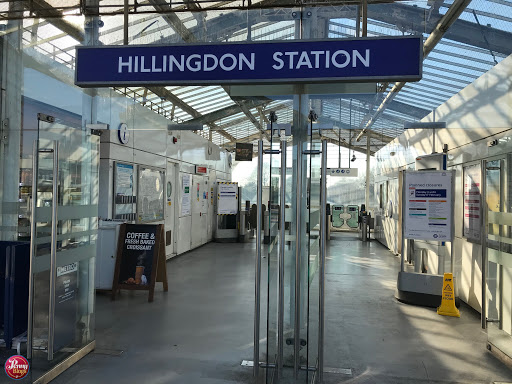
- Health (GP, dentist, optician information and registration, mental and sexual health support, carer support, registering births, deaths, marriages, civil partnerships etc)
- Housing (information on buying, renting, social housing, household services such as rubbish collection, information on fly tipping, etc)
- Education (information on early years, schools and beyond)
- Transport (using public transport, driving your own vehicle, etc)
- Information on other services such as Banking, using Post office, TV, Telephone, etc and Hillingdon People magazine, HillingdonFirst card
1. HEALTH
This section covers: 
1. Registration with GP, dentist and optician.
2. Mental health information and support
3. Sexual health information and support
4. Carer support
5. Registration of births, deaths and marriages
1.1. Registration with GP, dentist and optician
How to register with a doctor/General Practitioner (GP) 
You have the legal right to choose a GP practice that best suits your needs.
Try comparing GP practices according to facilities, services, access and performance before you decide.
Ask friends, relatives and others you trust for their thoughts and recommendations.
The GP practice must accept you, unless there are reasonable grounds to refuse you.
When you have found a practice you like, you'll have to formally register with it as an NHS patient by submitting a registration form to them.
When you have completed and returned the form, NHS England will transfer your medical records to your new practice and write to you to confirm your registration as a patient with that practice.
If you're registering a child under 5, you'll have the option of registering them for the Child Health Promotion Programme.
This means your child will be invited for regular health and development checks. Ask the practice for more details.
For more information on how to register with a doctor near you: NHS website - How to register with a GP
How to register with a dentist 
There is no need to register with a dentist in the same way as with a GP because you are not bound to a catchment area.
Simply find a dental surgery that's convenient for you, whether it's near your home or work, and phone them to see if there are any appointments available.
Dental surgeries will not always have the capacity to take on new NHS patients – you may have to join a waiting list, look for a different dentist who is taking on new NHS patients, or be seen privately.
You can find a dentist near you using the NHS website: Find Your Local Service
If a dentist accepts you as an NHS patient, you will:
fill in a registration form
find out what NHS services the practice provides
find out which dentist will treat you
have a check-up
You can also ask to register your child at the same time.
If you still cannot find a dentist accepting NHS patients, call NHS England's Customer Contact Centre on 0300 311 2233.
Poster - How to find an NHS dentist & top tips for healthy teeth
Summer Oral Health Activity Pack 2024
How to register with an optician 
Opticians can test your eyesight and prescribe spectacles or contact lenses.
You will have to pay for the eye test and spectacles or lenses, although you may be eligible for treatment at a reduced cost.
You can find nearest optician on NHS website: Find an Optician
1.2. Mental Health information and support
Looking after your mental health 
Having good mental health helps us relax more, achieve more and enjoy our lives more.
Visit the NHS Mental Health and wellbeing website for information. There are online mood self assessments, mental wellbeing audio guides and support for various mental health issues.
Visit the NHS website Every Mind Matters for more information on expert advice and practical tips for mental wellbeing.When to get help from your GP
It's important to seek help from your GP immediately if you are experiencing the following symptoms for the first time or are not already receiving care from mental health services:
Hallucinations – hearing or seeing things that are not there (for example, hearing voices); this can also include feeling, smelling or tasting things that are not there.
Delusions – having strong beliefs that are not shared by others (for example, believing there is a conspiracy against you).
Urgent Support
If you are having thoughts of suicide, are harming yourself or have thought about self-harm, it's important to tell someone.
These thoughts and feelings can be complex, frightening and confusing, but you do not have to struggle alone.
If you cannot wait to see a doctor and feel unable to cope or keep yourself safe, contact the link below to get support right away.
NHS advice with mental health crisis or emergency.
For a range of websites, links, tools and information, click on Mental Health and Wellbeing Resources.
How can we at Learn Hillingdon help? 
If you feel you are struggling with your own emotional health and wellbeing, why not try one of our free course to help you help yourself on the road to recovery?
Click: Wellbeing and emotional health for more information.
1.3. Sexual Health information and support
Sexual health clinics and Drop ins 
The integrated sexual and reproductive health clinic offers free, confidential sexual health advice and contraception.
These include:
contraceptive services (including emergency contraception)
cervical screening
pregnancy testing
abortion referrals
easy, non-invasive testing for chlamydia and gonorrhoea
testing and treatment for Sexually Transmitted Infections (STI), HIV and blood-borne viruses
You can book a sexual health appointment by emailing: lnwh-tr.hillingdonisrh@nhs.net
You can use these services at one of the clinics below:
The Wakley Centre
Grange Road
Hayes
UB3 2RR
Email: lnwh-tr.hillingdonisrh@nhs.net
Tel: 0208 453 2751 or 0208 453 2752
Website: https://www.nwlondonsexualhealth.nhs.uk
KISS Sexual Health and Wellbeing for 13-19 year olds
Offering advice and support with relationships, c-cards, condoms, pregnancy testing and signposting to other services
The Children and Family Hub
Civic Centre
Uxbridge
UB8 1UW
Email: SHWB@hillingdon.gov.uk
Tel: 01895 277222
1.4. Carer Support
Carer Support 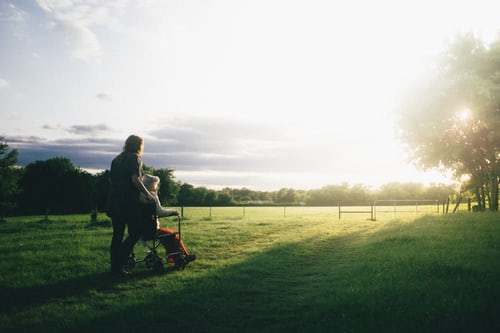
If you are looking after a relative, friend or neighbour because of their age, sickness or disability, then you are a carer.
As carers can spend most of their time looking after the needs of others, their own needs can often be overlooked.
Caring for someone can affect your own mental and physical health. If possible, try to take time out from caring to do things for yourself.
There are local support groups available in Hillingdon which can be accessed through Social Care Directory
For information, advice and support you can contact Hillingdon Carers
1.5. Registration of births, deaths, marriage and civil partnerships
Registering a birth 
When a baby is born, their birth must be registered within 42 days with the local registrar.
To make an appointment to register a baby contact:
The Register Office Civic Centre High Street Uxbridge Middlesex UB8 1UW. | Monday to Friday: 9:00am to 4:00pm
Online: Register a birth |
Who can register?
If the baby’s parents are married – either parent can register the baby.
If the mother and father aren’t married – the mother registers the birth.
To register the birth you need to give this information:
Passports for both parents or British driving licence
Marriage certificate if applicable.
Proof of address (utility bill or other)
Baby's red birth book issued by the maternity hospital.
£11 for each short or full certificate (cash or debit/credit card are accepted.
After registering the baby you will get a copy of the entry in the register and a form to register the baby with a doctor.
Registering a death 
When someone dies, their death must be registered with the local registrar within five working days of the death.
In response to the Coronavirus (Covid-19) pandemic, and following advice from government, currently council undertaking death registrations by telephone only and all ceremonial services have been suspended.
If the death took place within the London Borough of Hillingdon, it has to be registered at Hillingdon Register Office.
Telephone appointments are available Monday to Friday between 9:00am and 3.30pm
Who can register?
A relative or other person present at the death.
A relative present during the last illness.
A relative living in the registration area.
The person arranging the funeral.
To register a death you need to give this Information:
The date and the place of death.
The full name of the person who died.
The date and place of birth of the person who died.
The job and work address of the person.
Your name and address.
The name and date of birth of the partner.
The medical certificate from the doctor.
Information about any pension/benefits the person got.
Registration of Births, Deaths, Marriages & Civil Partnerships London. Borough of Hillingdon The Register Office Civic Centre High Street Uxbridge UB8 1UW. | Online: Death Booking Email: registeroffice@hillingdon.gov.uk |
Registering a marriage 
Marriage – arrangement and ceremony
Decide the date and the place you want to marry.
You must then give notice of your intention to marry – to do this contact the Register office to make an appointment.
Confirm the place you want to marry in.
Wedding Venues:
Documents you need:
You must give evidence of your age and identity – e.g. birth certificate and passport.
If either person has been married before, in the UK or another country, you must show legal proof of divorce.
If either person is a widow/widower, you must show a copy of the former partner’s death certificate.
Renewal of marriage vows
Any married couple can arrange this ceremony.
in the Four Seasons Room at the Register Office. Cost - £173.50.
at other approved premises. Cost - £262.50.
Click for more information on marriages and civil partnerships in Hillingdon
Registering a civil partnership 
Arrangements
Decide the date and the place you want to have the ceremony.
Give notice of your intention to do this – in the area where you live.
In Hillingdon you have the choice of holding your civil partnerships at these venues.
Hillingdon Register Office is available for signings only.
Documents needed:
You must show your passport and extra proof of identity (with a photo and date of birth).
You must also show 2 documents with your current address - council tax/bank statement and a utility bill (gas/electricity/telephone)
You must have lived at this address for a minimum of 7 days.
If either person has been married or had a civil partnership before – you must show divorce documents or death certificate.
If either person is a foreign national and subject to Immigration control – contact the Register Office.
For more information Civil Partnership Guide [839KB].
Call 01895 250418
2. HOUSING
This section covers: 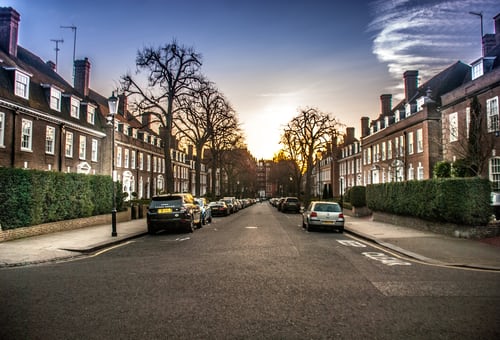
- Finding a place to live - Social housing
- Private renting
- Home ownership - buying a house
- Planning permission for extenstions, etc
- Rubbish and Recycling information
- Flytipping (illegal dumping of rubbish)
- General laws including Anti-Social Behaviour and Domestic Noise laws
- Community Mediation - for arguments between neighbours
- Household emergencies information
2.1. Finding a place to live - Social Housing
Social Housing
Borough or Councils will be able to provide you with advice and support to help you to find a place to live.
For Housing Advice:

The London Borough of Hillingdon provides free advice on a range of housing matters including housing options, prevention of homelessness, and tenancy matters.
Housing Advice and Options Team 2E/09 Civic Centre, Uxbridge, Middlesex UB8 1UW. |
Call Centre number - 01895 250147 Online: www.locata.org.uk/Hillingdon Email: housingadvice@hillingdon.gov.uk |
How to apply for Local Authority Housing:
Read
the criteria for joining the housing register [199KB] before applying.
If you meet the criteria, you can register using the link: Register with Locata
Housing Services Civic Centre High Street Uxbridge Middlesex UB8 1UW. | Monday - Friday 09:00 AM-16:30 PM
01895 277730 (for those with hearing difficulties) |
Housing advice for Young people (under 25):
P3 Navigator Centre is a Hillingdon Council funded service providing advice for young people. They offer assistance including:
Housing and homelessness.
Accessing specialist services.
Dealing with debt.
Mental and physical health.
Education and employment.
Addiction issues and relationships.
Drop In 18E Fairfield Road, Yiewsley, West Drayton UB7 8EX. (Monday,Wednesday & Friday 9:00am to 5:00pm, Tuesday & Thursday 1:00pm to 7:00pm) | Online: www.p3charity.org |
If you are homeless:
A person is considered to be homeless, if they have no accommodation today.
Before you make a request for assistance, you need to complete the housing advice self assessment: Housing Advice Self Assessment
Once you have completed the self assessment, you will be transferred to an external housing service, Housing Jigsaw, to register.
You must have an email address to proceed with your registration.
If you need help, please call
Emergency Accommodation
It is likely to be a nightly let arrangement where you will be provided with one room, usually with a shared bathroom and you will be required to arrange your own meals.
You have to pay for the emergency/temporary arrangement.
Sheltered Housing
These are self contained flats and bedsits for people over 60 years with an on-site warden for emergencies.
All sheltered housing developments are connected to the council's TeleCareLine emergency alarm system.
All schemes have a scheme manager who will help with advice, information, or assistance including arranging for a GP to visit or putting you in touch with other local services.
Call 01895 273617
Supported Housing
Sheltered housing supports vulnerable adults and young people(16+) with a learning disability.
Apply to be a shared Lives carer
If you want to stay in your own home, you can get help and advice.
Extra Care Housing
This is for people aged 55+ with additional care needs. It provides 24-hour support on hand if required.
For more details:
Download extra-care housing brochure [791KB]
or
Email: socialcaredirect@hillingdon.gov.uk
2.2. Private Renting
This is a house, flat or bed-sit rented from a private landlord (not a council property).
Find a place 
Ask friends and family.
Search online: If you have access to the internet you can look for properties on the following property sites:
Check notice boards (in shop windows, supermarkets, post Office).
Check local newspapers.
Advertise yourself: Use free websites such as Spare Room or Gumtree or post your advert on social media sites.
Letting agents (a company that will help you find a place, and will charge you money)
When you visit a place, ask the landlord:
When you can move in
Deposit and rent in advance – money you pay before you can move.
Rent
Council tax
Gas/electricity/water bills
How and when rent is to be paid (cash/cheque etc)
How long you can rent it for
Note: Find out the Local Housing Allowance (LHA) rates for the area you are looking at properties.
2.3. Home ownership
Buying a house
There are some key phases to buying a house. 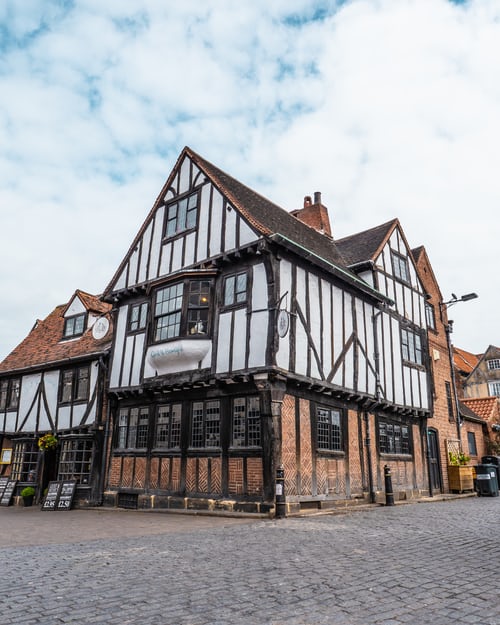
Organising your finances:
Getting an Agreement in Principle (AIP):
Finding your home:
Making an offer
Formally applying for a mortgage:
When you buy a home, you'll put down a cash deposit and pay for the rest using a mortgage from a bank or building society.
You then pay the mortgage plus interest back in monthly instalments over a set number of years.
Hiring a solicitor and Completing the purchase.
First time Buyers Scheme 
The First Time Buyers Scheme is an opportunity for Hillingdon residents to become homeowners.
The scheme is exclusively for first-time buyers who have lived in Hillingdon for the last 10 years and have funds to pay a minimum 7.5% deposit.
The council tops up your deposit with a grant to assist applicants purchasing a home suitable for their needs, in an area of their choice within Hillingdon.
Funding is limited and applications are processed on a first come first served basis.
Shared ownership 
Shared ownership allows you to buy a property which otherwise would not be affordable.
Who is eligible ?
The standard requirements for shared ownership are:
Applicants should have a gross annual household income of no more than £90,000 per annum.
Applicants must be unable to purchase a suitable home to meet their housing needs on the open market.
Applicants will need between 5 to 10% deposit on the value of the share they wish to purchase.
Applicants who supplement a low income with welfare benefits (for example, housing benefit) will not meet affordability requirements and are therefore not eligible. Owner occupiers may be considered as a result of a relationship breakdown.
You must be able to obtain a mortgage or have sufficient capital to buy your share.
Your home may be at risk if you fail to keep up your mortgage or rent payments.
How do I apply ?
Click: Apply for Shared Ownership
Or
Download: Shared Ownership application form
Right to buy: Buying your council home 
You can get a discount on the market value of your home when you buy it if you qualify for Right to Buy.
In London Boroughs the maximum discount is £112,300. It will increase each year in April in line with the consumer price index (CPI).
Discount is based on:
How long you’ve been a tenant with a public sector landlord.
The type of property you’re buying - a flat or house.
The value of your home.
If you’re buying with someone else, you count the years of whoever’s been a public sector tenant the longest.
You’ll usually have to repay some or all your discount if you sell your home within 5 years.
You might get a smaller discount if you’ve used Right to Buy in the past.
Visit for information and scheme: Right to Buy Scheme
2.4. Planning permission
If you want to make your house bigger or change your house – you must check with the council before you start building. Tell the Council what you want to do to your house. The Council will tell you what you must do. You might have to make a planning application. If your application is OK, the Council will give you planning permission. Then you can start changing your house. Most planning and building control applications are submitted online. Please submit your application through Planning Portal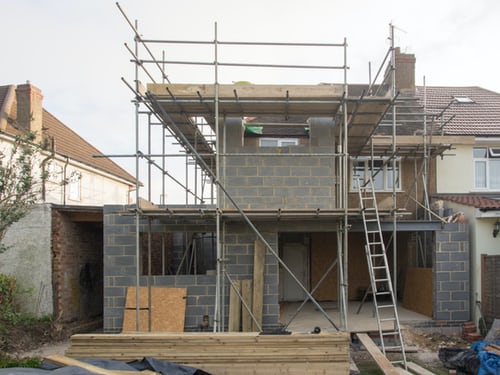
How does it work ?
How do I apply ?
2.5. Rubbish and Recycling
The Council will collect rubbish from where you live every week. Rubbish for recycling – put in the clear recycling bag (e.g. food,garden waste, paper, glass, cans, plastic bottles). Rubbish - everything else – put in the refuse sack (e.g. food, plastic bags, nappies). Put in a garden waste sack. Collected every week. (e.g. leaves, flowers) It is available for houses and maisonettes with private gardens only. Sign up to the service Residents who sign up to our service, will receive: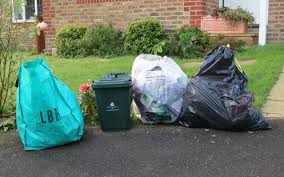
Rubbish must be sorted into two bins:
Garden Waste
Food Waste Collection
Click here to check your Food Collection Day
Need more recycling bags? Click here to order more recycling bags
Rubbish Collection
You need to know your own rubbish collection day.
Bulky Waste Collection
Bulky waste items include fridges, freezers, bed frames, mattresses and wardrobes.
Call 01895 556000
For more information: Rubbish and Recycling
(Collection available from Monday to Friday, starting at 7:00 am)
Note: Most of our home appliances, especially refrigerators and fridges also rely on chemicals. They can be hazardous to the environment when not disposed of properly. |
2.6. Fly tipping
What is fly tipping? 
Fly tipping is illegally dumping rubbish anywhere. Being a criminal act the council take this action very seriously due to the effect it has upon the environment and surrounding residents. This can be large scale dumping such as by illegal waste carriers Even smaller scale dumping such as leaving an unwanted carrier bag of waste by bins. Tipping a mattress, electrical items or a bin bag full of rubbish in the street causes a local nuisance and makes an area look ugly and run down. A source of bad smells that can be bad to your health. Attracting flies. Harbouring rats and mice Causing a safety concern Why not Fly tipping?
2.7. General Laws in the community
Anti-social Behaviour 
Anti-social behaviour covers a wide range of behaviour, such as damaging the environment, low-level disputes and clashes of lifestyle, or causing serious nuisance to others and even threats of violence and criminal activity. If you are worried about anti-social behaviour, you should make a report to the police.
Read more about anti social-behaviourDomestic Noise Laws
Residents have the right to enjoy life in their own way in their own home, but they should not break the law or interfere with the rights of others.
Here is some advice about noise:
For music and other entertainment, keep the volume down –whether it’s TV, car stereo or conversation – especially at night/early morning.
If you are having a party, consider inviting the neighbours. Keep windows and doors closed, and if someone complains, turn it down.
Use noisy domestic appliances at sensible times – during normal waking hours. Hoovering in the early hours could disturb your neighbours.
Do noisy jobs and operate noisy equipment when it will cause least disturbance to your neighbours. Avoid working when they are trying to sleep or enjoying a quiet night in.
If you are doing something really noisy, e.g. floor sanding, drilling in party walls, let your neighbours know beforehand and they are far less likely to complain.
Avoid slamming doors and being loud.
Before you report the noise, you should:
Talk to your neighbours to find out if they are affected as well.
Talk to the person causing the problem because they may be helpful when they understand the problem.
However, it would be wise to consider what reaction you are likely to get. If your neighbour reacts aggressively, do not put yourself at risk.
If you are a private tenant, contact your landlord or residents' association.
2.8. Community Mediation
What is Community Mediation?

This is a way of sorting out arguments between neighbours. An impartial person acts as a referee between the neighbours.
Mediation can help with many problems, e.g.
Noise.
Rubbish.
Parking issues.
Lifestyle differences.
Shared spaces.
Boundaries and fences,high hedges and many others.
Use a Mediation Service
If you cannot resolve the dispute by speaking to your neighbour, get help from a mediation service.
There can be a fee for mediation, but this will still be cheaper than hiring a solicitor and taking legal action.
Contact Mediation Service: Find a Mediation Provider
Or
Your Council or Housing Association may provide mediation service.
2.9. Household Emergencies

Electrician: For electricity, lights, boiler |
Plumber: For Water, Toilet, Bath/Shower, burst pipes |
|---|---|
Glazier: For Glass, broken windows |
Gas engineer: For Gas central heating, cooker, fire |
You can find nearest service: Yell.com
Find one near you where you live.
Phone – explain the problem, give your name, address and phone number and ask about the cost.
If you smell gas/have a gas leak:
Gas Emergency number: Call 0800 111 999 Health and Safety Executive (HSE) Gas Safety Advice Line |
3. EDUCATION
This section covers: 
- Childcare and Early Years (includes childcare options for children under 5 years old)
- Education at different ages (includes information on different ages and their education levels in the UK)
- School education (includes information on schools, how to apply, etc)
- Adult education, training and employment (includes information on further education into university and other adult learning services, including HACL)
- Learning English (ESOL)- (includes information on courses to improve your English)
3.1. Childcare and Early Years
Children’s centres offer a range of free services, activities, information and guidance to meet the requirements of families with children aged five and under.

Free Childcare for 2-year-olds
Families either working or not working and receiving certain benefits can get it.
You can get 15 hours of free childcare and early education for 38 weeks.
You can get 570 hours per year with one or more childcare providers.
If you want to apply, please email the Families' Information Service at fis@hillingdon.gov.uk.
Online: Application for 2 year old funding
Free childcare for 3 and 4-year-olds
All families in England with 3 and 4 year old children can get it.
It is 15 hours of free childcare and early education for 38 weeks.
You can get 570 hours per year to use with one or more childcare providers.
3 or 4 year olds (30 hours)
It is for working families in England with 3 and 4 year old children.
It is 30 hours of funded childcare and early education for 38 weeks.
You can get more hours if both parents are working or if you are a single parent that works.
Visit Hillingdon Council website for more information on free childcare:
Childcare ChoicesContact your nearest Children's Centre: 
Name | Address |
A children's centre in a Victorian mansion house within Barra Hall Park | Wood End Green Road Hayes UB3 2SA |
The centre offers many services and is open throughout the year - not just term time! | Belmore Primary School Owen Road Hayes UB4 9LF |
A support for families in the community who have children under the age of five, helping them to provide their children with the best start in life. | Bury Avenue Hayes UB4 8LF |
The centre helps families in the area, offering access to training and development, peer support and a listening ear. | Sipson Road West Drayton UB7 9DL |
Colham Manor Children's Centre A children's Centre with lots of different sessions on offer. | Violet Avenue Hillingdon UB8 3PT |
We offer a wide range of services to support families with every aspect of family life through transition into parenthood and beyond. | Fore Street Eastcote HA5 2HX |
We encourage multi-disciplinary working and support opportunities to include children with additional needs. | Worcester Road Cowley Uxbridge UB8 3TH |
We offer local families a wide range of services, from stay and play sessions to courses for parent and carers with a free child facilities. | High Street Harefield UB9 6BT |
McMillan Early Childhood Centre A wide range of activities for families with children under 5 years. Groups for families to attend, adult learning courses, post natal groups and ESOL classes. | Judge Heath Lane Hayes UB3 2PD |
Nestles Avenue Children's Centre Early years day care and education provision for children aged 6 months to 4 years, available for full or half day sessions. | Nestles Avenue Hayes UB3 4QA |
The centre is where children under 5 years of age and their families can access help and support from a team of professionals. | Windsor Avenue Hillingdon UB10 9PD |
Our aim is to give each child a sure start, so they are equipped with the skills needed, to thrive and develop, when they start school. | Pinkwell Lane Hayes UB3 1PG |
Queens Walk South Ruislip HA4 0LR | |
The centre is where children under five years of age and their families can access help and support from a team of professionals. | Whitehall Road Uxbridge UB8 2DQ |
Lots of activities and services including toy library, Dads group, midwifery, IT classes and much more | Yeading Infant School Carlyon Road Hayes UB4 0NR |
We offer all age services, as well as children's centre services and these are all tailored to the community's needs. | 74 Colham Avenue Yiewsley UB7 8HF |
For more information and map of centres: Visit Children's centre homepage
3.2. Education at different ages
This section explains the levels of education at different ages in the UK.

Primary School: 5-11 Years
You will need to apply for a place at a school for your child.
You do this in the year before they will start.
Online: Primary School Admissions
Each child will work towards the National Standards, known as Key Stages with a test at the end of each Stage:
Key Stage 1 is for Years 1 and 2 (approximately 5-7 years).
Key Stage 2 is for Years 3, 4, 5 and 6 (approximately 7-11 year).
Date of Birth | Start or Transfer | Apply |
01/09/2015 - 31/08/2016 | Start Reception September 2020 | 1 Sep 2019 – 15 Jan 2020 |
01/09/2016 - 31/08/2017 | Start Reception September 2021 | 1 Sep 2020 – 15 Jan 2021 |
Secondary School: 11-16 Years
You will need to apply for a place at a school for your child.
Your primary school will let you know when to do this and send home more information on when to do this.
Online: Secondary School Admissions
Each child will work towards the National Standards, known as Key Stages with tests at the end of each Stage:
Key Stage 3 is for Years 7, 8 and 9 (approximately 11-14 years).
Key Stage 4 is for Years 10 and 11 (approximately 14-16 years) and leads to GCSE examinations.
Education and Training after 16
When they reach 16, children can choose to leave school, or continue to study.
After 16, the options are:
Stay in full-time education, for example at a college.
Start an apprenticeship or traineeship.
Spend 20 hours or more a week working or volunteering, while in part-time education or training.
3.3. School education
Starting School
Most children start school full-time in September after they turn 4.
If your child is aged between 5 and 16, they must attend school.
State education is free, however, parents have to pay for any school uniform and sportswear.
All pupils in Reception, Year 1 and Year 2 in state-funded schools are eligible for free school meals.
Parents on low incomes can get help with these costs and with the costs of school meals.
Some schools collect used uniforms which can be re-used by others.
Pupils follow the National Curriculum which is divided into five Key Stages.
Pupils do a test at the end of each Key Stage. These tests are very important.
School is Monday to Friday, normally 8:55am – 3:15pm.
There are 3 terms:
Autumn Term - September to December.
Spring Term - January to March.
Summer Term - April to July.
How to Apply:
To find a list of all schools in Hillingdon (Nursery, Primary, Secondary) with Name, Address and Phone Number go to:
School Placement and Admission Team4E/09 Civic Centre High Street Uxbridge Middlesex UB8 1UW. | Phone - (01895) 556644 (Monday-Friday 9:00am-5:00pm) Email-admissions@hillingdon.gov.uk Online: School Placements and Admissions |
NOTE: Attending school regularly is important for children and holidays must be taken outside the school terms.
If a child misses school regularly, they may be monitored by the school and continued absence without good reason, could lead to prosecution or fine.
3.4. Adult Education, Training and Employment
University and adult education and training

- You can apply to university if you meet, or are likely, to meet the entry requirements.
- UCAS is the central organisation through which applications for university and higher education are processed.
Young Hillingdon
For learning and work options in Hillingdon: Options for Young People
You can use the UCAS calculator. The UCAS calculator enables you, the student, to input your A/AS Level grades then calculate how many UCAS points you need to go to university and study a course
You can also use financial support for Higher Education. If you need more information please go to: Student Finance
Or Call 0845 300 5090
For adults who wish to learn at a basic or intermediate level (not University)
How can we at HACL help? 
Hillingdon Adult Community Learning (HACL) offers hundreds of courses for day, evening or weekend study, with centres around the borough.
We provide courses for adults aged 19 and over who wish to learn a new skill, improve their English, maths or digital skills, or change their career.
We offer impartial and practical information and advice, with an aim to support you in identifying and achieving your end goal, whether you are learning with us or not.
Listen to our Service Manager, Debbie Scarborough, on Uxbridge FM about the adult education in the London Borough of Hillingdon https://www.youtube.com/watch?v=Jr_4QuPUfuQ.
Through our Education and Careers Hub we will help support you in making fully informed choices that will help move you towards realising your ambitions and unlocking your potential.
We have a wide range of courses including ESOL, Maths, English, ICT, Childcare, Floristry and many more vocational courses.
We also offer a number of family learning courses to support the needs of your family's learning.
How to Contact Us:
For more information and centres, download the brochure, visit our website, call or email us:
HACL Website: Hillingdon Adult Learning
Download the HACL 2020-2021 Brochure
Call your nearest centre or email us on hacl-info@hae-acl.ac.uk
Note: Following the COVID-19 outbreak, we have adapted our enrolment procedures this year to ensure the safety of residents and staff.
To enrol on courses that do not have a qualification attached, please enrol online.
Click : View courses to browse our range of courses.
To enrol on courses that do have a qualification attached, we need you to complete an initial online assessment to find out what your starting point is. If you would like a member of staff to contact you to discuss your choice before enrolling, please complete this form.
Other learning providers:
Most colleges hold open days for prospective students or trainees.
3.5. Learning English (ESOL)
Improving your English language skills will help you settle into the UK. Having good English language skills will help you feel more confident at work and in the community.
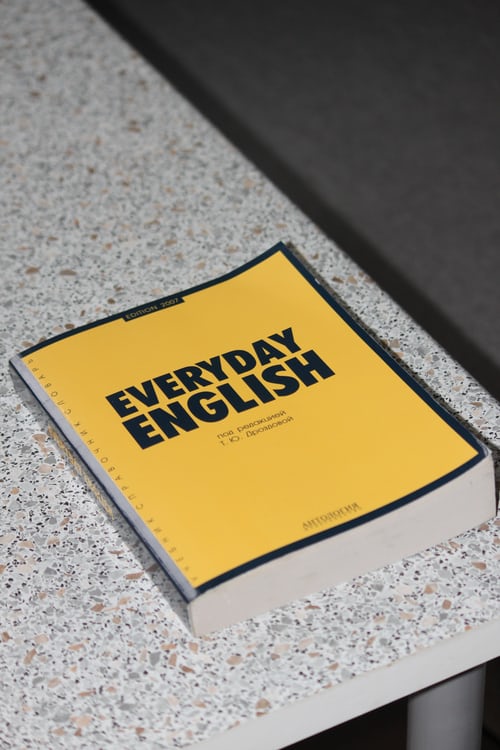
There are English language courses locally. Sometimes these courses are called ESOL, which stands for English for Speakers of Other Languages.
English language training is also useful for people taking the Life in the UK test.
If you want to learn English, or improve your English while you are here, there are many places that run classes including Hillingdon Adult and Community Learning and further education colleges.
ESOL classes are free for people who are unemployed and on benefits and for people who are working but earning a low income.
How can we at HACL help?
Move your English skills up to the next level with our free courses. This year, you can also join a free course to improve your digital skills.
You will be amazed at how much your confidence will build when you practise what you are learning in our friendly classes and use it in your everyday life. It is good fun too and the skills and qualifications you gain will help you find a good job or move on to another course.
We have daytime and evening courses that lead to the qualifications you need to move up the career ladder. Our shorter introductory courses start throughout the year and all of our courses will help you blend everything together through a mixture of classroom and online learning.
We offer free advice about building your qualifications and starting, or changing, your career. Why not take the opportunity now?
If you would like some information about your career options or would like to join a class, please call one of our adult learning centres or make an enquiry
4. TRANSPORT
This section covers: 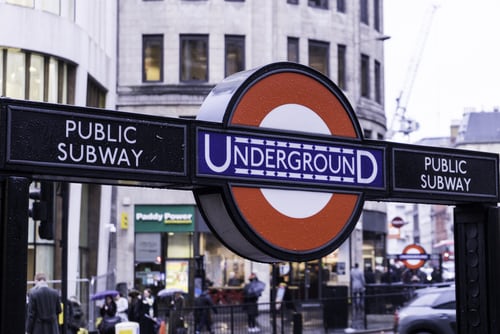
- Public Transport (includes trains, buses, Freedom Pass)
- Community Transport, Taxis and Cycling (includes taxicard scheme)
- Driving in the UK (includes information on driving licence and parking)
- Owning and maintaining your own car/vehicle (includes information on vehicle MOT, insurance and Tax)
4.1. Public Transport
Public transport includes buses, trains and tube travel. 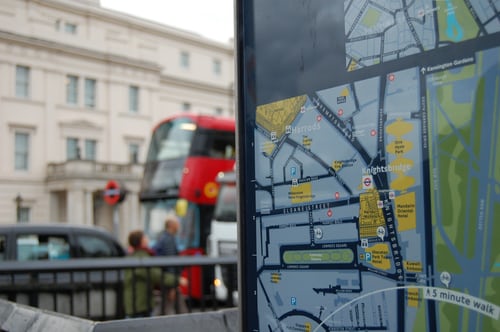
Users of public transport are expected not to cause damage or behave in a way that offends other passengers. You will need to have an Oyster card, contactless payment, a bus and tram pass, a paper Travelcard or Freedom Pass to travel on a London Bus.
You can plan your Journey by clicking the following link: Plan a Journey
In Hillingdon, public transport is run by Transport for London or private companies.
Hillingdon Council does not operate any public transport services.
You can find more information about each mode of transport at Hillingdon's public transport website.
The Freedom Pass is provided by the Borough of Hillingdon to give older people and disabled Londoners free travel on almost all public transport in London. The older persons Freedom Pass gives free travel on most public transport in London 24 hours a day and all day at weekends and public holidays.Freedom Pass

You can apply or renew an older person's freedom pass online by visiting Information on Freedom PassApply or Renew your Pass
4.2. Community transport, taxis and cycling
Community transport 
There are services available providing community transport for older people and those with disabilities.
Hillingdon Taxicard Scheme
Taxicards enable people with serious mobility needs to travel in black cabs at reduced fares.
Taxicard is a scheme providing subsidised transport for people who have serious mobility impairment and difficulty in using public transport.
For more information about the Hillingdon Taxicard scheme click on Taxi Card Scheme
Taxis
Taxis are generally more expensive than buses or trains, unless several people share a journey.
They often wait in taxi ranks outside stations or in central areas of main towns.
Taxis can pick you from home and drop you to your destination.
You can ring a local taxi company and book a taxi.
Cycling 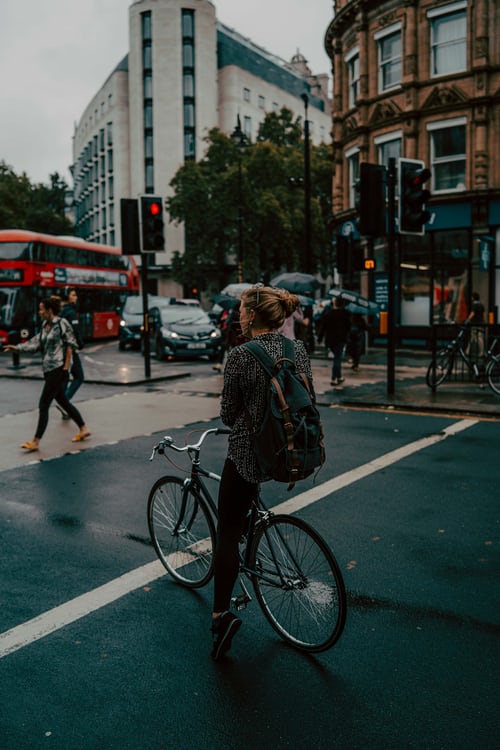
Many people cycle for pleasure and to go to work or shopping.
Some roads have special cycle lanes which help keep cyclists safe from cars.
To help you stay safe when cycling, wear a helmet and reflective strips. These are marked with signs.
For more information on safe cycling, cycle tracks, clubs and activities in Hillingdon:
4.3. Driving in the UK
At what age can you start learning? 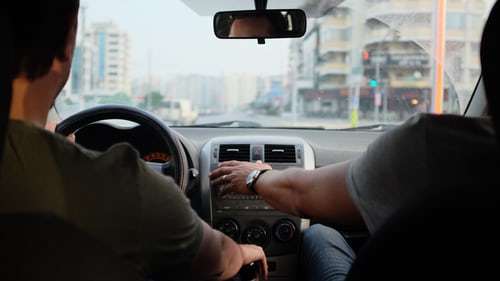
Car - 17 years and over
Moped (below 50cc) – 16 years and over
Motorcycle – 17 years and over
Vans – 18 years and over
Lorries – 21 years and over
For useful tips on driving from the Hillingdon site click here.
What is a Provisional Licence?
If you want to learn to drive in the UK, you must have a provisional licence (cost £34 if you pay online or £43 if you apply by post).
You can apply Online: Provisional Driving Licence
Or
You can apply by Post: D1 application form which is available from the Post Office.
If you have a full licence from an EU Country
You can drive in England for as long as your licence is valid, or until you're 70, if you've got a driving licence from a European Union country.
If you have a licence from a Non-EU Country
You can drive in England for 12 months if you’ve got a non-European Union (EU) driving licence or international driving permit.
You can then take a driving test and apply for a full licence once you’ve been in Great Britain for at least 6 months.
Taking a UK Driving Test 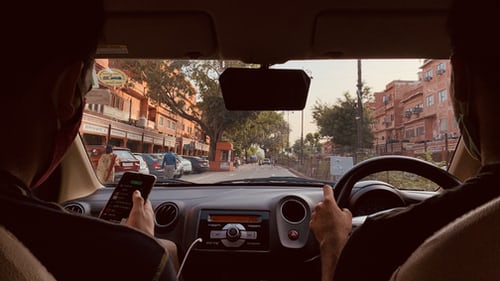
UK driving test has two parts:
Theory – you answer questions (using a computer) about driving rules and safety.(Cost of the test - £23.00)
Practical – You drive with an examiner in your car.(Cost of the test - £62.00 to £75.00)
Theory Test:
- You must have a provisional driving licence to book your theory test.
- You can take the theory test from your 17th birthday onwards.
- There are 2 parts to the test:
Hazard perception - a video test about spotting hazards on the road.
You can book your test online: Book Theory Test
Practical Test:
You must pass a car theory test before taking the car driving test.
You can book your test online: Book Practical Test
Cost – Monday-Friday £62.00
Evenings, weekends and bank holidays £75.00
Parking 
In most car parks (shown by a large blue sign with a white P on it), there will be machines where you can buy a ticket. In some car parks you buy a ticket for the amount of time you expect to park your car for (Pay and Display car parks). In others you are given a ticket, and pay when you leave for the amount of time you were there. Attendants can help you if you are stuck, but not all car parks have them.
Click for : Types or parking in Hillingdon
Click for : Parking permits in Hillingdon
4.4. Owning and maintaining a car/vehicle
MOT Test 
The MOT test checks that your vehicle meets road safety and environmental standards. If your car is more than 3 years old, it must have an MOT test every year. This is a test to make sure that the car is working safely. This can be done in a garage (with a special blue MOT sign outside).The maximum fee for a car is £54.85 and £29.65 for a standard motorcycle. If there is a problem with the car, the garage will charge you more money to fix it. Check with the garage how much this will cost. You can be fined up to £1,000 for driving a vehicle without a valid MOT and your insurance will be invalid should you need to claim.
Click here: Get and check MOT
Vehicle Insurance
You must have motor insurance to drive your vehicle on UK roads. Third party insurance is the legal minimum. You may want to use an Insurance broker. This website has information about different kinds of insurance and a list of the big insurance companies.
Tax your vehicle
You must tax your vehicle even if you do not have to pay anything, for example if you’re exempt because you’re disabled. You’ll need to meet all the legal obligations for drivers before you can drive. Tax your car, motorcycle or other vehicle using a reference number from: a recent reminder (V11) or ‘last chance’ warning letter from DVLA. your vehicle log book (V5C) - it must be in your name. the green ‘new keeper’ slip from a log book if you’ve just bought it. You can apply online: Vehicle Tax Or Call 0300 123 4321 (24-hour service)
5. INFORMATION ON OTHER SERVICES
This section includes: 
1. Money, Banking, Post Office, Council Tax, Telephone and Television Licence
2. Hillingdon People magazine and HillingdonFirst card
5.1. Money, Banking, Post Office, Council Tax, Telephone and Television License
Money in the UK 

Currency
Britain’s national currency is the pound sterling (£).
One pound (£1) is made up of 100 pence (p).
There are coins for £2, £1, 50p, 20p, 10p, 5p, 2p and 1p.
There are notes for £5, £10, £20 and £50.
There are lots of places you can change money in Britain:
- Exchanges on high streets, in airports and major railway stations
- Banks
- Travel agents
- Post offices
It is a good idea to shop around to get the best deal and remember to ask how much commission is charged.
The Banking System
Bank accounts help you to receive money, keep track of your spending and saving and pay bills. There are a large number of banks in the UK.
To open a bank account you need to visit a bank.
Look online or go to your local high street to find a bank.
The bank will ask you for proof of identification before you can open an account. Examples of this are passports (with visas if it is a non-British passport) or a driving licence.
The bank will also ask you for proof of address. Examples of this are utility bills or a tenancy agreement.
The bank should then open an account for you.
Using the Post Office 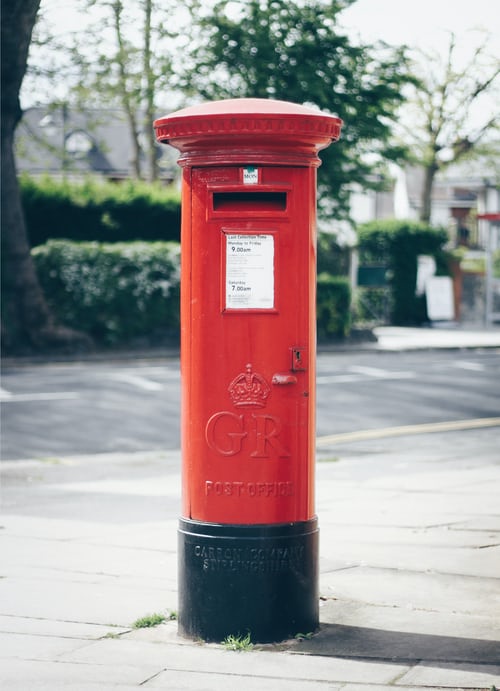
You can go to the Post Office for many things.
Sending a letter/parcel in the UK
Buying stamps
Sending a letter/parcel to another country
Finding forms to apply for or renew vehicle tax, a driving license or a passport
Paying bills or topping up your gas card or electricity key
Exchanging currency
For more information about services please visit: Post Office
There are a number of different services you need to pay for if you have your own accommodation in the UK.
There are usually a number of different options available to pay your bills.
You can talk to the utility provider (gas, electricity etc.) and look at the back of your utility bills to see which is the best option for you.
Pay Online or by phone banking:
If you bank online or by phone, you can pay your bills directly.
It’s quick and easy and you’re in control of exactly what you pay and when, but you have to remember to pay your bills in time.
Paying by Direct Debit:
Once you have opened a bank account, you can set up a direct debit.
Direct Debit is the simplest way to pay your household bills or make regular or occasional payments to any kind of organisation that accepts Direct Debit payments.
This means that you agree to a payment which is then taken from your account.
Paying by standing order:
Give the bank an instruction to pay an exact amount to another account regularly.
You can ask your bank to set up a standing order.
Pre-payment meter:
Gas and electricity can be prepaid by topping up a key or a card which goes into your gas or electricity meter.
At the post office:
You can often pay a bill by cash or card at the Post Office.
There can sometimes be a fee for using this service.
Telephone 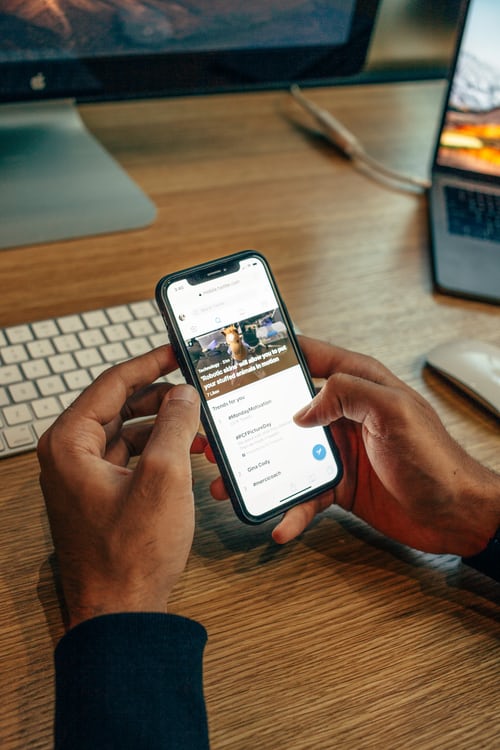
Most houses in the UK have a fixed phone line (called a landline). If you do not have a line, you can contact a phone company to get one.
You will usually have to pay for this. If you already have a phone line, you can be connected for free.
Mobile phones can be useful, but consider the costs carefully and visit different mobile phone shops to get the best deal.
Television (TV) Licence
If you have a television (TV) in your house,you must also have a television licence.
How can I pay?
You can be taken to court and fined if you do not have a TV licence.
Licence Fees: Colour TV- £157.50 a year
Black & White TV- £53 a year
People over 75 years old – Free
To pay your TV Licence: Pay your TV Licence Fees
Council Tax
Council tax is a local tax which pays for services such as the police, fire service and rubbish and recycling collection.All homes in the UK have to pay council tax.
Your local authority decides how much council tax you should pay.
You’ll need to know 3 things:
the valuation band for your home in England and Wales
how much your local council charges for that band
whether you can get a discount or exemption from the full bill
You may be able to get Council Tax Reduction (this used to be called Council Tax Benefit) if you’re on a low income or get benefits.
CLICK: Pay your Council Tax Bill
5.2. Hillingdon People Magazine and Hillingdon First card
Hillingdon People magazine 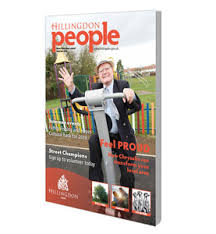
This is the magazine for Hillingdon residents, which provides community news from the council, is delivered to homes across the borough every two months.
To book an advertisement in the magazine, see delivery dates or report a missed delivery:
CLICK: Hillingdon People Magazine
HillingdonFirst card 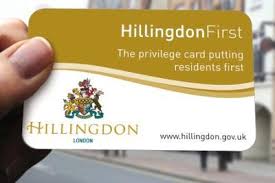
Our HillingdonFirst card offers residents discounts, offers and preferential rates on various products, services and facilities across the borough.
CLICK: Apply for a HillingdonFirst card Please note: Before you can use your HillingdonFirst card, you need to register it online.Who can apply?
![]() Read the full terms and conditions [235KB]
Read the full terms and conditions [235KB]

